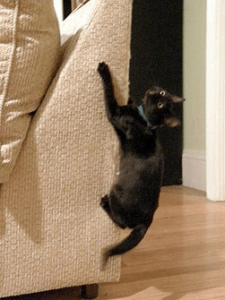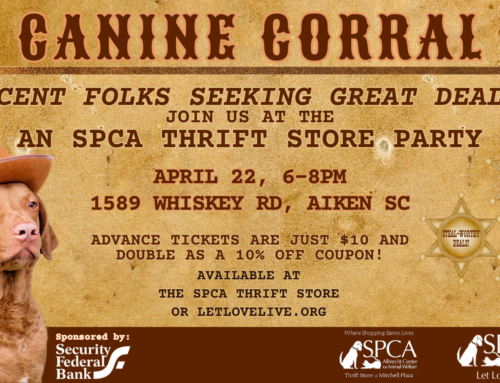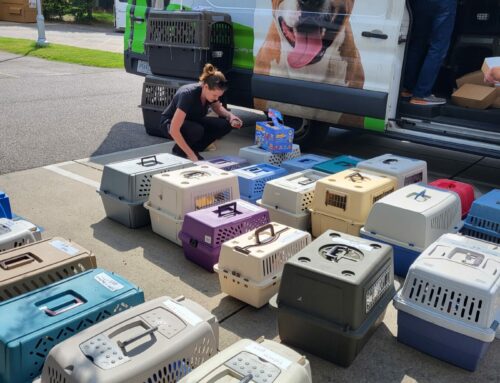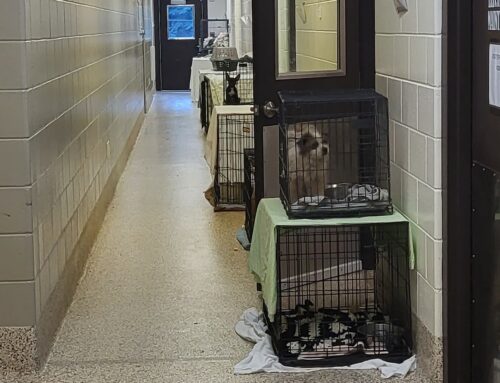By: Sarah A. Neikam, Operations Manager
My husband, Tom and I bought new living room furniture earlier this year. It was the first brand new furniture purchase for both of us. Up until then, furniture was always secondhand, so we plan to keep this new set looking new as long as possible. Thankfully, it’s easy to keep clean.
What’s not so easy, is keeping the cats’ claws out of it. Our three adopted felines: Bastian, Luna and Grady seem to like the furniture as much as we do, maybe more since it doubles as a sleeping spot and scratching post all in one.

Many people think declawing is the best solution. No claws, no scratching, right? Well, that’s right, but declawing a cat is not the simple, “quick fix” that it is widely believed to be.
Declawing is actually a serious, often painful, surgical procedure and it involves amputation of the last bone of the cat’s toes. You could compare it to removing the last knuckle of each of your fingers. Ouch!
Risks related to this procedure can include paw pain, lameness, and even back pain because removal of a cat’s claws changes the way their foot makes contact with the ground. If removed improperly, there can be bone spurs or nerve damage.
According the Humane Society of the United States, declawing can also make a cat less likely to use the litter box and more likely to bite. A declawed cat also has diminished chance of defending itself in the face of another cat, dog or other predator.
None of these risks are necessary and the practice of feline declawing is widely discouraged in the animal welfare community. Some countries even consider the procedure illegal or at least extremely inhumane and it is only performed under extreme circumstances.
In the United States, some veterinarians will perform the procedure, but many do not, including our own veterinarians at the SPCA Albrecht Center. The Humane Society of the United States “opposes declawing except for the rare cases when it is necessary for medical purposes, such as the removal of cancerous nail bed tumors.”
The ASPCA is also “strongly opposed to declawing cats for the convenience of their owners or to prevent damage to household property.” Their stance is that “the only circumstances in which the procedure should be considered are those in which all behavioral and environmental alternatives have been fully explored, have proven to be ineffective, and the cat is at grave risk of euthanasia.”
So what’s the alternative? For my husband and I, it was extra scratching posts (sisal is best) placed at the corners of each piece of furniture. We also found some great “Furniture Defender Cat Scratching Guards” on Amazon.com. They’re flexible, clear vinyl sheets available in different sizes that you apply to the corners of your furniture. They definitely do the intended job and are barely noticeable.
Other options include regular nail trims to keep the tips blunt and short, deterrents such as double-sided tape (Sticky Paws), pheromone diffusers and sprays, and even colorful, non-toxic, vinyl caps that can be applied directly to each claw.
It’s important to remember that scratching is normal, healthy feline behavior and cats should be allowed to do so freely. It’s up to you as the cat owner to provide them with appropriate opportunities, devices and training to do so if you’d like to preserve the life of your furniture.
If you are having a cat scratching problem, make a appointment to speak with your veterinarian about the best options, keeping in mind that declawing should only be considered as an extreme, last resort.
The SPCA Albrecht Center veterinary team is here to help, too. Give them a call at 803-648-6863 to make an appointment or walk-in for a visit Tuesday – Friday from 1:00pm – 4:00pm or Saturdays from 9:00am – 3:00pm. We’re located at 199 Willow Run Road, in Aiken. See services and prices online at LetLoveLive.org.
The SPCA Albrecht Center for Animal Welfare is a private, nonprofit, no kill animal shelter in Aiken, SC. The SPCA also operates a local Thrift Store (“Where Shopping Saves Lives”), a public, affordable Veterinary Care Center & a Dog Park. It is our mission to improve the lives of companion animals by rehoming abused, abandoned, and neglected pets while fighting for their well-being through vigorous legislative efforts, humane education, and by offering affordable veterinary care for all.
WANT TO SUPPORT OUR HOMELESS ANIMALS?



